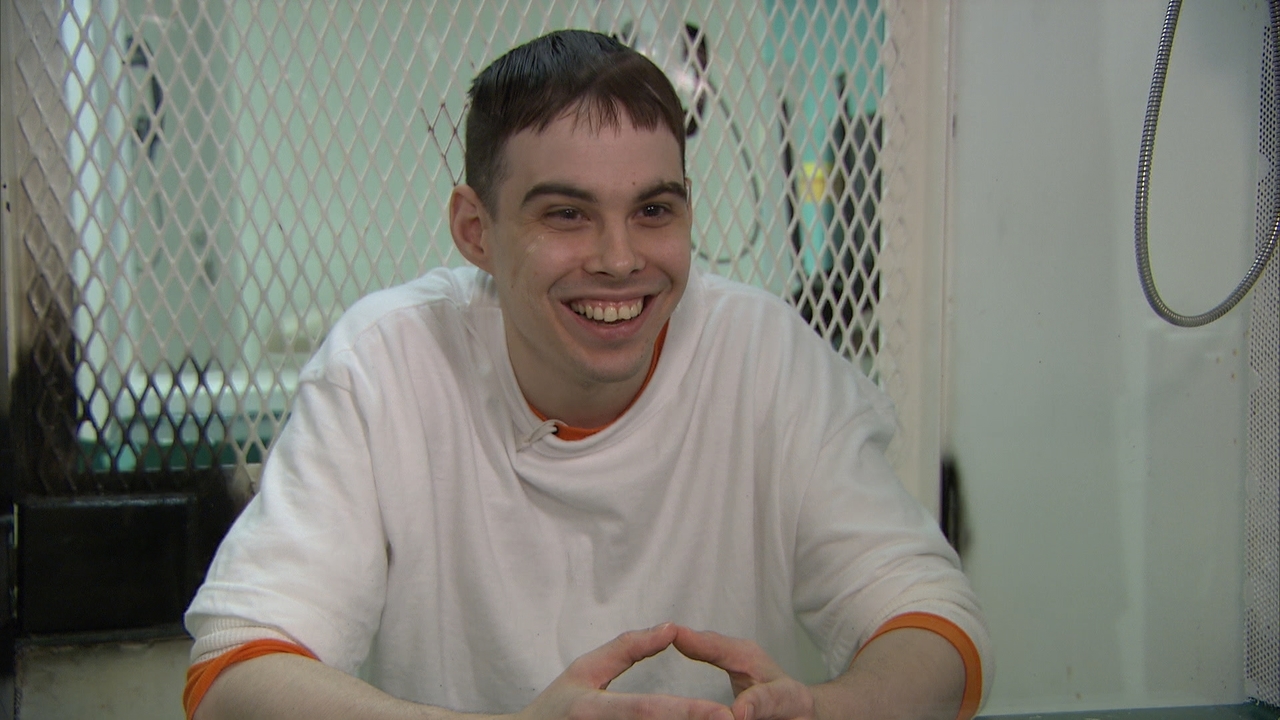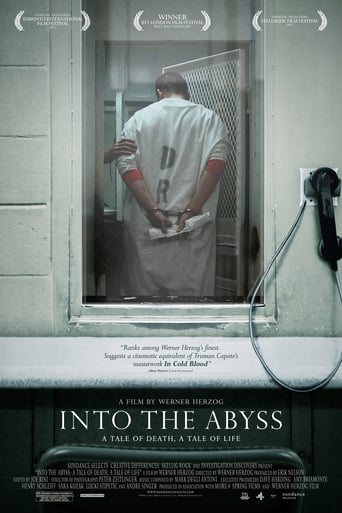

Best movie ever!
... View MoreYour blood may run cold, but you now find yourself pinioned to the story.
... View MoreBlending excellent reporting and strong storytelling, this is a disturbing film truly stranger than fiction
... View MoreClose shines in drama with strong language, adult themes.
... View MoreFilmmaker Werner Herzog does a documentary about Michael James Perry. He's on death row in Livingston, Texas scheduled to be executed in 8 days. He was convicted along with his friend Jason Burkett for a triple homicide. They killed a housewife in her home to steal a car and then killed two young people to get passcode for the community gate. This is not really a whodunit unless you believe Burkett or even Perry. It's not impossible to believe them and there are certainly people willing to do that. This is really about the whole society in general. It is about the victims. It is about the daughter who lost her family. It is about Burkett's father who watches his various family members get incarcerated along with him. It is about the friend and Herzog who is more interested in him learning to read as an adult. It is about the executioner who had to quit. This is quite a tapestry of Texan life.
... View MoreIn 2001, teenagers Michael Perry and Jason Burkett were arrested and charged with a triple-homicide shortly after an intense shootout with the police. They were convicted of murdering 50-year old nurse Sandra Stotler, her sixteen year old son Adam, and his friend Jeremy Richardson. They shot and killed Sandra with a shotgun in her garage so they could steal her valuable red Camaro, and later murdered the two teenagers to obtain the keys to the gate of their middle-class community estate. As a result, Perry was sentenced to die by lethal injection, and Burkett was given a life sentence.Just how one culprit can be slated to die while the other gets to spend their life behind bars for the same crime is just one of the many questions raised in Werner Herzog's objective documentary on capital punishment. We meet Perry early on, child-like and God- fearing, just 8 days before he is due to die. During this meeting, Herzog reveals his own feelings about the death penalty (he's strictly against it) and even tells the inmate that he doesn't like him very much, but that he also respects everyone's humanity and point of view. The film is not a condemnation of Death Row, but a meditation, and Herzog simply sits back and allows the story to tell itself through interviews from all sides and sporadic narration.Although it does cover the crime itself in detail, Into the Abyss is not a re-investigation, but tells the story of the horrifying events back in 2001 juxtaposed with interviews from 2010 to allow us to make up our own mind and absorb the devastating affects such an act of brutality can cause. The most heart-breaking moment comes from the interview with Burkett's father, a prisoner himself, as he comes to terms with his own role in his son's fate. We learn of the events that attributed to his boy's character and eventual destiny, and wonder if society failed him. We then see how the crime left Sandra Stotler's daughter completely alone in life, and wonder why such a monster like Burkett should be allowed to live. You may find yourself discussing the topic in depth afterwards, but on hearing Perry's final words to the victim's families before he was given a lethal dose, I could not bring myself to believe that watching him die would ever bring them inner peace.
... View MoreThis documentary feels lost between a spiritual exploration of the consequences of death and an investigation of the events of a violent crime but fails in both aspects.I really felt that the film didn't have a true focus and wandered into a plea against the death penalty but you could feel that the filmmaker doesn't understand the American mindset and questioned some of the protagonists with a certain layer of intellectual arrogance.Herzog didn't seem to emerge himself into the culture of the south, his cold shots of the poor rural areas only seemed to be integrated to showcase the "lower class" status of his protagonists instead of giving a true sense of the culture.So for a European filmmaker with a completely different cultural background, the subject matter of the death penalty must seem to a certain extend absurd & uncivilized but in the "wild west" inheritance of the American experience, executing a man for justice is embedded for centuries into the mindset of the United States.Even if his questions seemed to want to probe the emotional state of his protagonists, he didn't seem to really want to understand the "why" the death penalty is considered an acceptable form of justice in the States.And for that, I believe that this documentary feels judgemental instead of actually a 'document' of an event or of a complex cultural subject matter.
... View More"Into the Abyss," is a documentary film by Werner Herzog, about a young man sitting on Texas's deathrow, awaiting execution for killing a woman and 2 other young men so that they could steal a car.This is a clear propaganda piece by Herzog where he tries to draw attention to the left-wing ideal of getting rid of the death penalty. The fact is he continued paint the picture of boys from the wrong side of the tracks, who only committed murder because of their poor upbringing, lack of education, and American gun owning society. One interview he even pushed someone from the town to go on about his lack of education and the fact that until recently learned how to read. Come on Herzog! Not being able to read doesn't have any effect on knowing what is right or wrong.Then he went on to talk to a former bar employee who knew the murderers and even road in the stolen vehicle, and it was clear that the only footage he wanted was the part where she said that over the years she saw a lot of bad things happen. He also interviews one of the fathers of the murderers who is also serving a sentence for murder. Herzog gets the father to weave a tale about his failings as a father and that was the cause of all this. Notice also I did not mention anyone of the killers because a triple murder does not deserve to ever be mentioned!This is clearly a hard left-wing, social democrat push vehicle. It is an attempt to show how horrible the U.S. is, our education system, our gun rights. It does everything leftists and socialists always do, They try to paint everyone as a victim, and shouldn't have to face any responsibility for anything. The fact is a life sentence is much more of a cruel and unusual punishment than the death penalty, and what people forget is that the U.S. became the superpower it is BECAUSE we don't follow in the footsteps of Europe's Left leaning policies.All in all, this is a contrite, transparent, and condescending documentary. I am sure Werner Herzog got plenty of pats on the back for his effort, but next time he should stay and do more documentaries in and around Europe. 2 out of 10
... View More